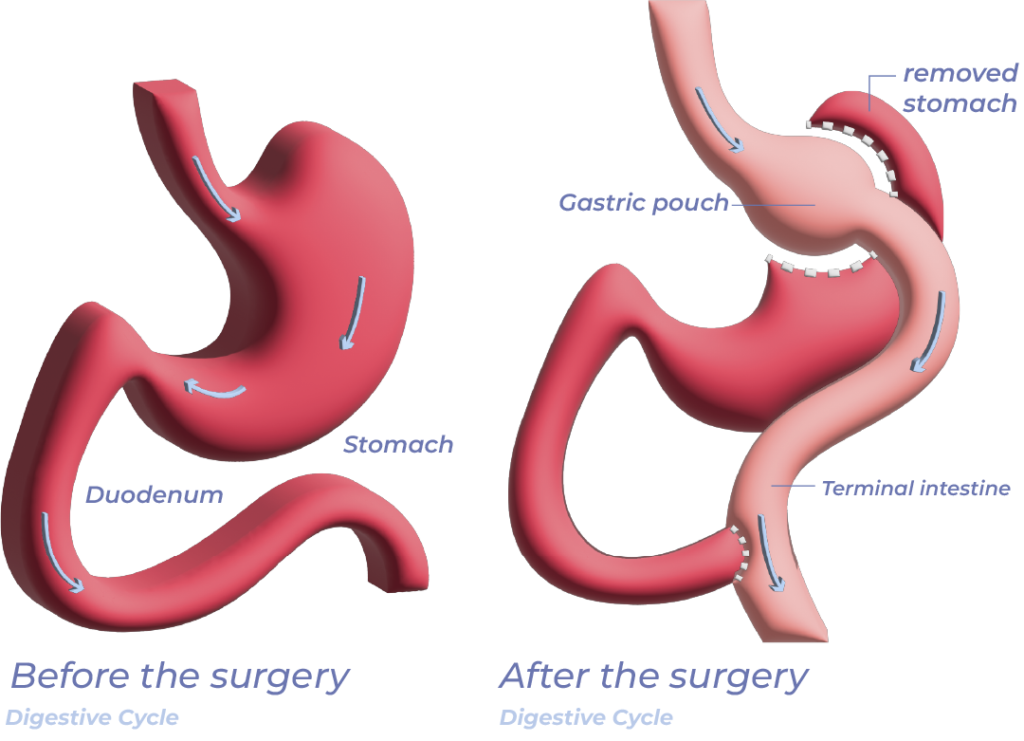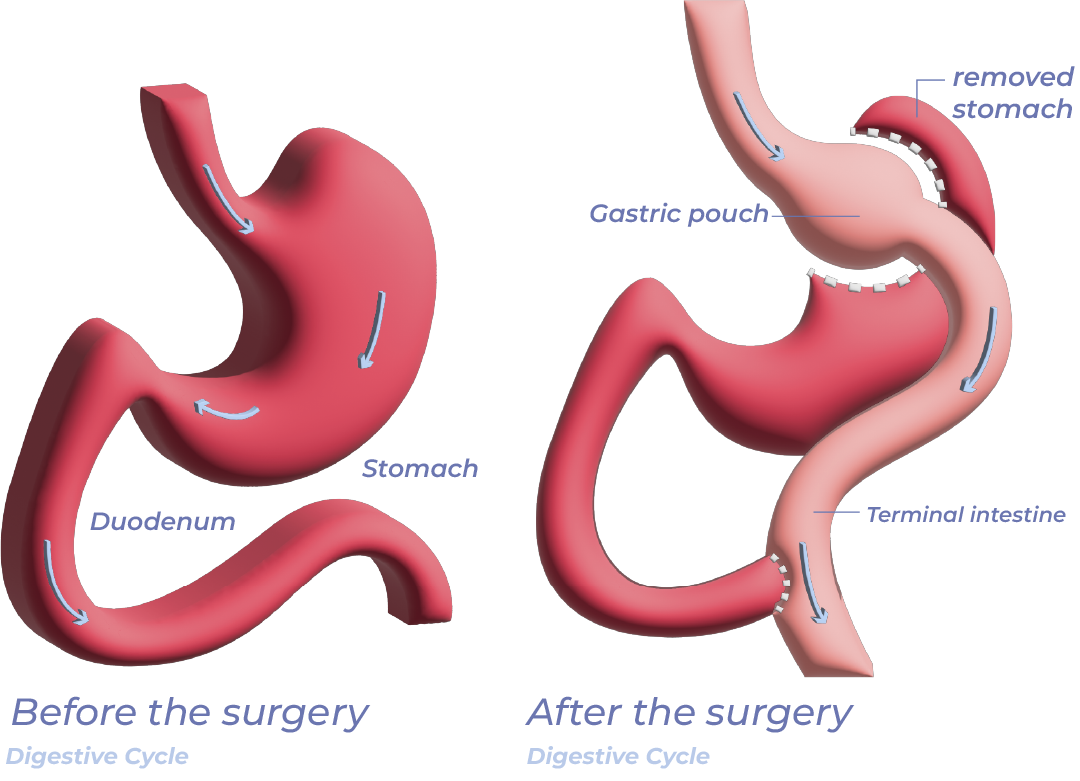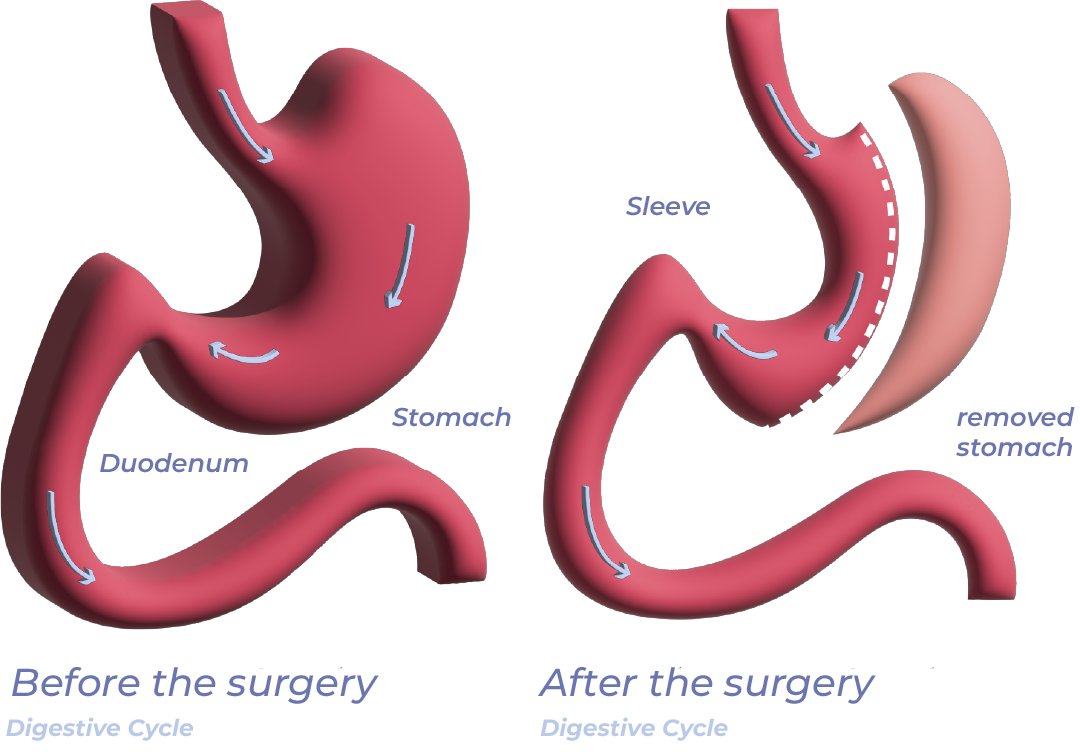Bariatric surgeries are surgical alternatives that help prevent health problems in people who are very overweight and who have found it difficult to lose weight with traditional methods.
Gastric bypass is a type of bariatric surgery especially indicated to treat people with grade III obesity, also known as morbid obesity. It is one of the most common surgical procedures for weight loss and is considered an option when the patient does not achieve an effective result when trying to lose weight through diet and exercise.
How is gastric bypass performed?
Generally, the bypass is performed laparoscopically, that is, small incisions are made in the abdomen to introduce surgical instruments and a camera. Only in specific cases is this surgery carried out through a larger abdominal incision.
During surgery, the surgeon cuts the upper part of the stomach and seals it, creating a small pouch that then proceeds to connect with the small intestine and finally the incisions are closed. What this process achieves is to give the food that the patient ingests a new transit route, avoiding its passage through the stomach.
This operation lasts approximately 2 hours and the patient must remain hospitalized for 24 hours.
Postoperative gastric bypass
It is essential to follow a strict liquid diet during the first weeks after surgery, gradually progressing with a special eating plan to start consuming soft foods until finally being able to consume a normal diet to the extent that the body can tolerate them, when the stomach and the intestines have healed. This should be accompanied by vitamin and mineral supplements such as iron, calcium and vitamin B-12.
Advantages and disadvantages of gastric bypass
Gastric bypass brings obese patients a series of benefits, which are:
- Significant weight loss: It is one of the most effective surgeries for weight loss, with up to 70% and 90% weight loss in patients.
- Improved health and comorbidities: It is a procedure that helps, improves or reverses obesity-related diseases, such as diabetes, high blood pressure and sleep apnea.
- Solve gastroesophageal reflux: By disconnecting the area of the stomach where gastric acids and reflux occur, the feeling of acidity and burning when consuming food disappears.
- Little invasive and reversible: This is a procedure that can be reversed, in addition to being little invasive and with quick recovery
However, like any surgical procedure, there are also disadvantages or risks that surgery can bring. Some of the disadvantages of gastric sleeve are as follows
- Changes in digestion: It is a surgery that radically changes the way digestion is carried out, so one of the problems that may arise is nutrient malabsorption, vitamin deficiencies and chronic diarrhea. This is why patients should follow their bariatric doctor’s instructions to eat a good diet and take the necessary supplements.
- Long-term complications: It is very rare, but there are possibilities of long-term complications associated with surgery, such as ulcers, hernias and intestinal obstruction.
For whom is gastric bypass recommended?
The gastric sleeve is ideal for patients with a body mass index (BMI) of 40, it is also suitable for patients with a BMI greater than 35 who suffer from obesity-related diseases, such as diabetes, hypertension, sleep apnea. It can be performed from 18 to 65 years of age, after medical evaluation. It is ideal for patients who eat compulsively. The patient may need to follow a plan of
change of habits before surgery through multidisciplinary support so that he can be fit to receive it and have a better relationship and assimilation of his new and better eating habits after it.
Gastric Bypass: Bariatric Procedures
Contact our team to learn more about gastric bypass as a bariatric procedure. We are responsible for providing you with the best personalized care, ensuring that you have a safe surgical procedure, with professional support before the operation, during your recovery and with the transition to your new eating habits.




